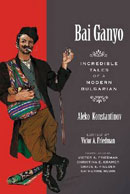 By David McAuley
By David McAuley
If you are coming to Bulgaria to visit or live and want to read one book about the culture, instead of wasting your time reading all those boring history books that the administrator of this site is always reviewing, read this book, a new translation of a classic work of Bulgarian literature. Here’s why:
- At under US$20, it’s relatively cheap for a new paperback.
- It’s short.
- It’s reasonably funny.
- The book is made up of an set of interlocking comic short stories, some of which can be read in their entirety in the time between the time when the stewardess tells you to turn off your electronic devices to prepare for landing and the time when you are allowed to turn them back on again.
- It was translated in sections by four native-English speakers who are clearly enthusiastic about Bulgarian culture and also know how to explain it to newbies.
- It was edited by one of the four translators, who pulled the various translations together into a seamless whole.
- The introduction provides excellent cultural and political background – it’s worth reading before you start.
- All Bulgarians that you are likely to talk to here (meaning, anyone educated enough to speak some English) will have read this in school, know it, and have an opinion about it. They will be impressed that you have made the effort to read a work of Bulgarian literature, even in translation. If given a chance, they will spend a long time making sure you fully understand the historical, linguistic, and social context of the book, thus relieving you of the necessity of making conversation yourself, perhaps even for the entire evening.
Bai Ganyo’s full name is Ganyo Balkanski – “Bai” is a title of respect. He’s a kind of caricature of a national type, roughly analogous to Sinclair Lewis’s Babbitt in the US or Colonel Blimp in England. In the opening stories, he’s a light-hearted satire. A travelling rose-oil salesman, he starts the book by barging through 1890’s Europe in search of free food, drink, and lodging, suspicious of pickpockets everywhere. He’s critical of whatever nationalities he’s meeting in one breath, and talking about the significance of being European the next.
When he returns to Bulgaria, Bai Ganyo changes from being a comic yokel to a blustering hoodlum, and the stories take a darker comic turn. He fixes elections, starts an irresponsible newspaper, and hires thugs to beat people up. The book notes indicate that the author, an aspiring politician as well as a writer who was eventually murdered under mysterious circumstances, was able to draw on his experience on the receiving end of this type of behavior to make the stories believable.
But this book is not just museum piece. A lot of the issues that pop up in this book are still in play today. With Bulgaria recently in the EU, there’s still a tremendous amount of talk here about what it means to be European, whether it actually worth being European, and so on. Another example: the introduction talks about the difficulty in translating the flavor of Bai Ganyo’s Turkish-influenced dialect, which was the “hillbilly-speak” of its day, marking you as a provincial. Today, the use of Turkish-derived words in popular and youth culture is still a matter of controversy; a sign of rebellion on one side of the cultural divide and a matter of much wailing and gnashing of teeth by the guardians of language purity on the other.
Everything old is new again. Read this book.
Buy Bai Ganyo: Incredible Tales of a Modern Bulgarian from Amazon today.
Citation:
Konstantinov, Aleko. Bai Ganyo: Incredible Tales of a Modern Bulgarian, edited by Victor A. Friedman, Madison:University of Wisconsin Press, 2010.
[ad#Google Adsense Bulstack 468×60 post banner]



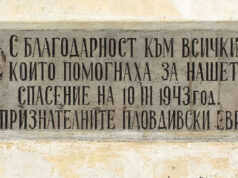

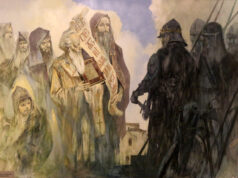
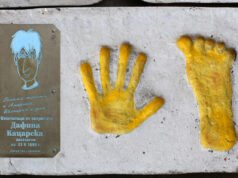
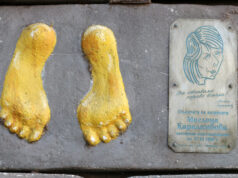
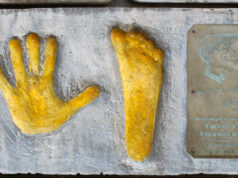
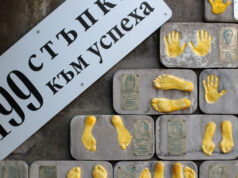


[…] a review of Victor’s edited translation of Bai Ganyo has been published on BULstack, a blog of Bulgarian […]